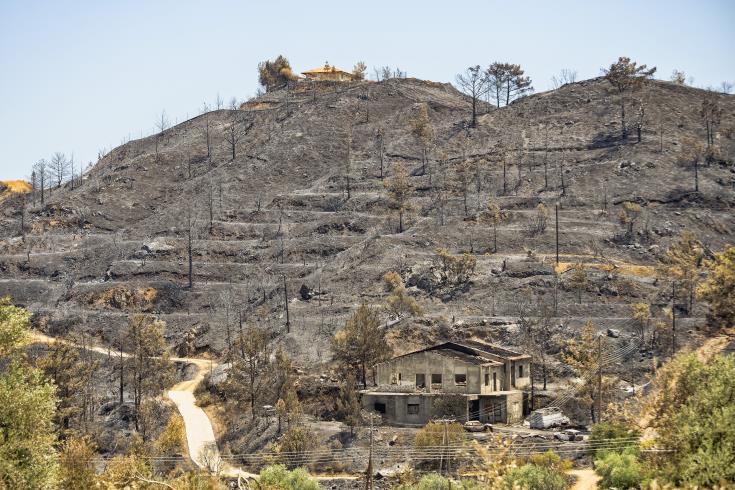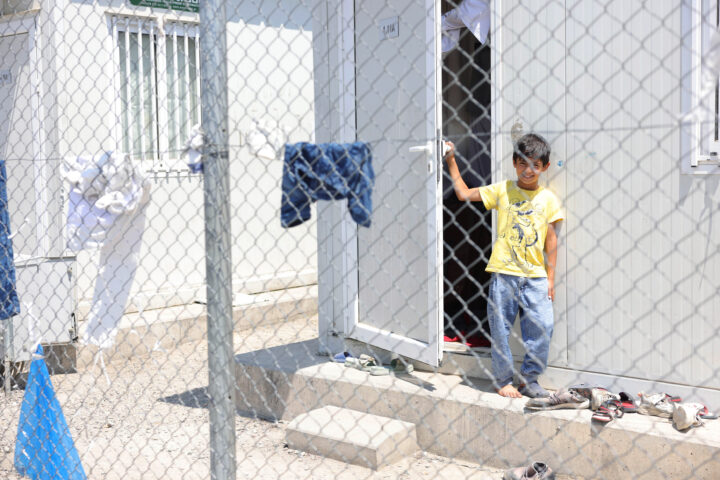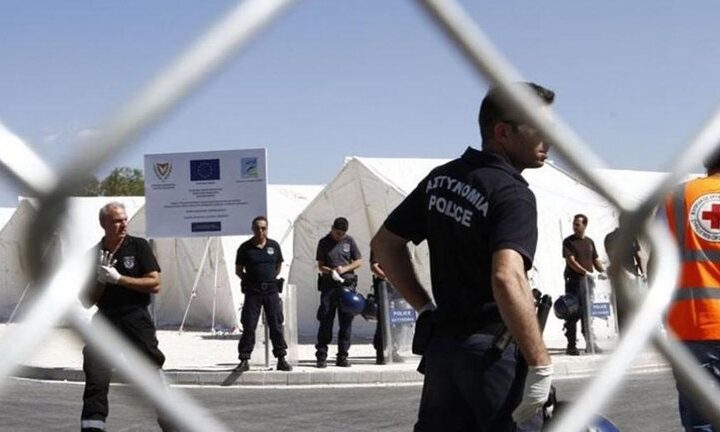Trade unions and migrant support groups want a probe into the working conditions of four Egyptian labourers who died in the huge wildfire, arguing racism influenced how the incident unfolded.
Unions PEO and DEOK, and migrant support group KISA have requested authorities investigate what conditions the dead workers were living under and why around 100 migrant labourers were left behind in Odou village after it was evacuated.
“We expect the Labour Ministry to act promptly to provide answers for everyone and assign responsibilities where they exist,” PEO said in a statement.
DEOK said investigations must be carried out into the living conditions of the unfortunate workers, arguing that authorities do not do enough to ensure seasonal workers are looked after properly.
In comments to the Financial Mirror, KISA’s Doros Polykarpou said the deadly fire left more behind than scorched earth.
“It is yet another testimony to Cyprus’ institutional racism and the way we, as a society, treat migrants and foreign workers,” said Polykarpou.
He said that Morzok Shady Morzok, 36, Elisa Melad Farouk, 25, Ezat Salama Josef, 36 and Maged Nabil Yonan, 24, lived in a ramshackle cabin on the tomato plantation where they worked.
“The cabin was made from wood and corrugated iron pieces which were added to a small storage room in the field,” said Polykarpou.
He argued that authorities do not care to check the living and working conditions of migrant workers in Cyprus.
“They should have been in a residential zone and not living on the field.
“If they had been living in the village, and not 4-5 km away in the fields, they would still be alive today.”
Polykarpou said landowners have migrant workers staying in badly built cabins on their fields to save money on accommodation and use them as de facto guards of their properties.
Survival instinct
“Apart from the four people who died, the others made it out alive purely thanks to their survival instincts.”
He said most land workers, like the unfortunate Egyptians, are considered seasonal workers and do not have contracts.
“They are deprived of their salaries until they complete their four or six months of employment as a seasonal worker.”
Polykarpou said it is common practice for employers to pay their workers when they finish their term.
He said that seasonal workers on farmland are usually paid €500-600 a month.
He claimed that workers are kept isolated from the community without any contact with the outside world and no medical care.
“None of the 250 workers in the villages in the affected area have been vaccinated against COVID-19, despite employers having them live all together.”
Polykarpou was told by relatives and friends of the deceased that medical examiners took their time to get to the scene, with the family waiting for five hours from when the bodies were found.
“And when they did arrive, they did not bother to get out of their vehicles but decided to send a photographer to take photos of the bodies.
“Family and friends were then given gloves instructed by police officers to put the bodies in bags and carry them to a van to be transported to the morgue,” said Polykarpou.
Ezat Salama Josef, 36, worked in Cyprus for the past four years and was the father of three children aged 8, 7 and 1.
Morzok Shady Morzok, 36, was a father of four young children.
Elisa Melad Farouk, 25 and Maged Nabil Yonan, 24, had been in Cyprus only a few months and did not have children.










